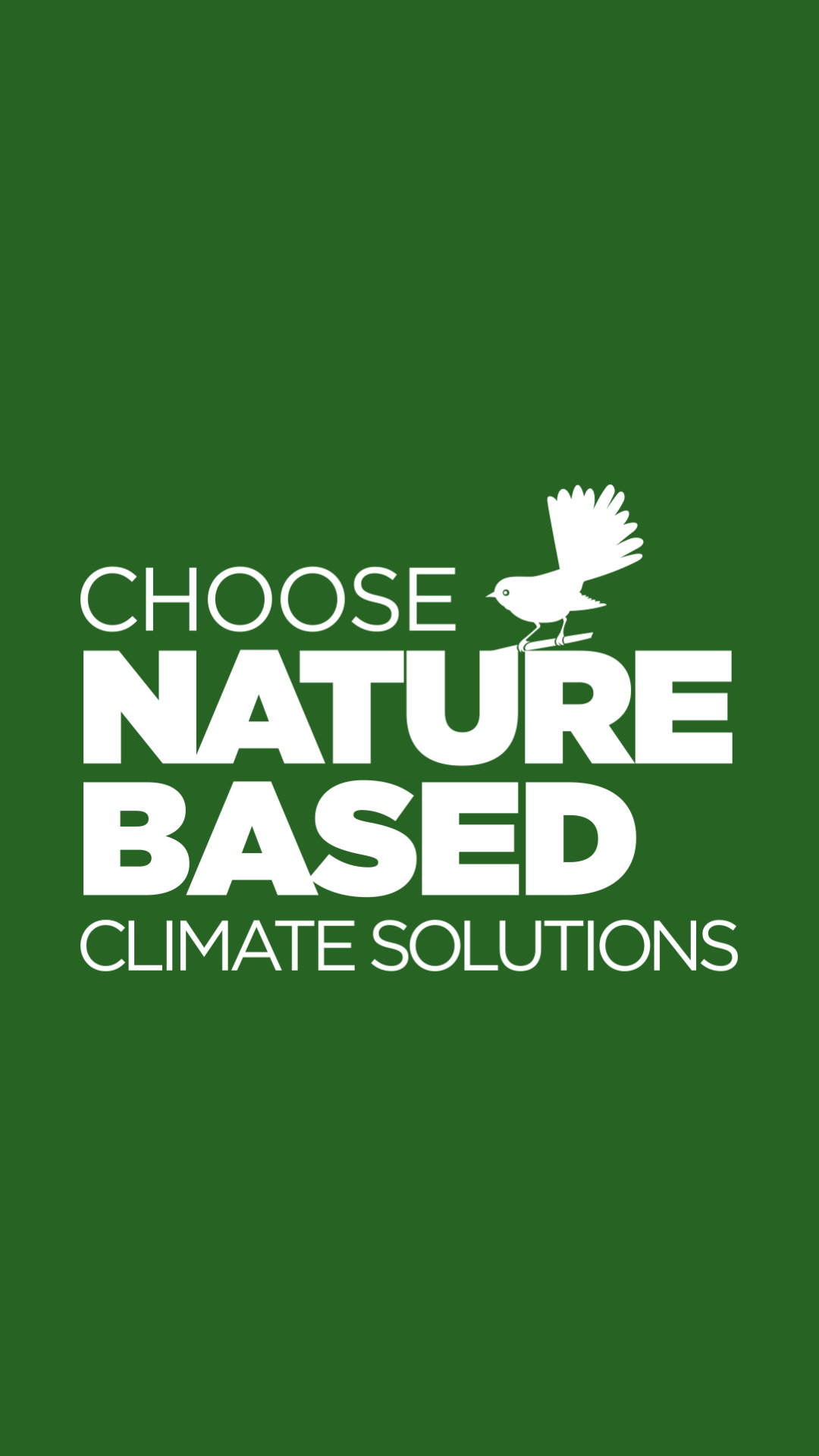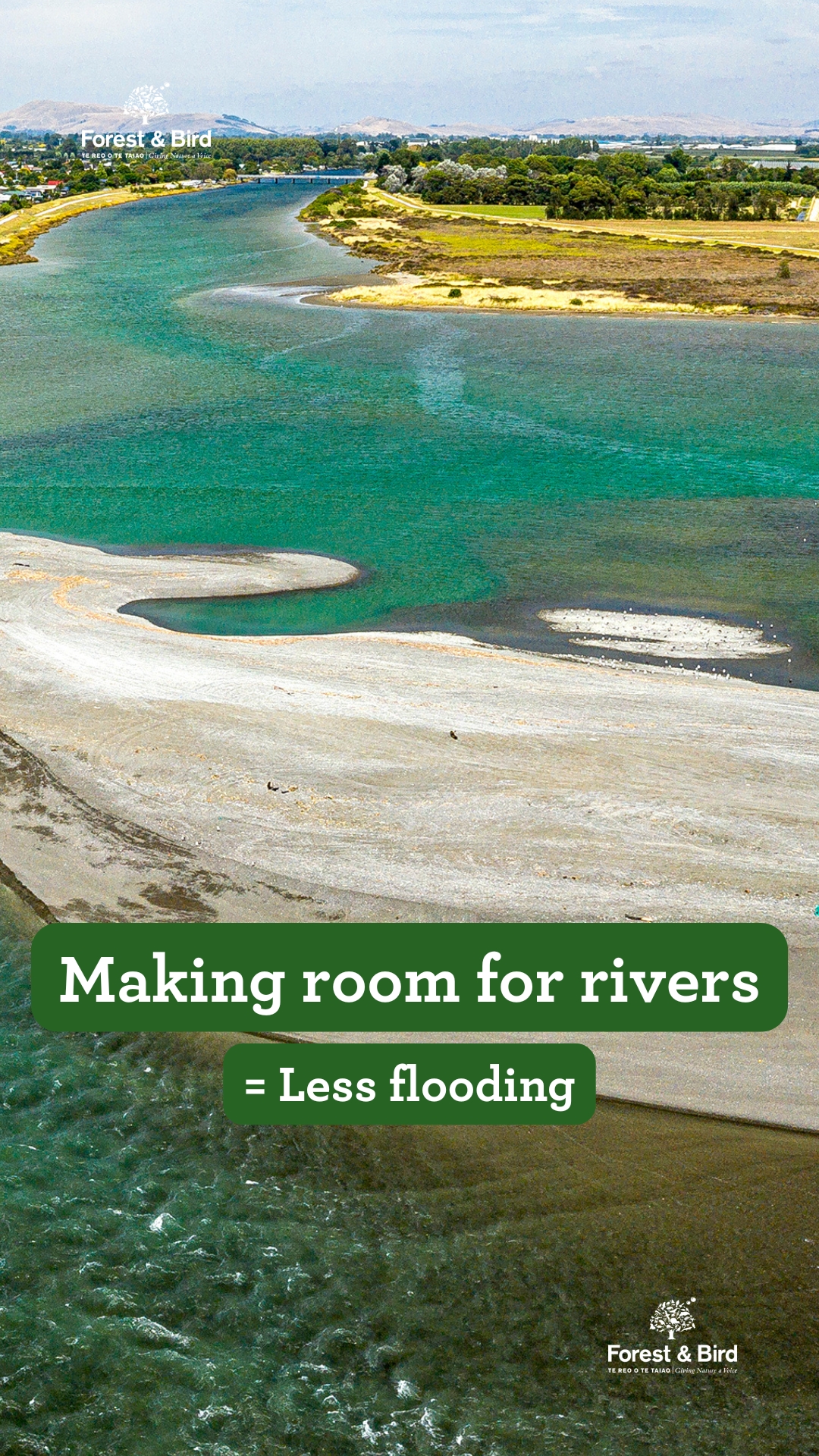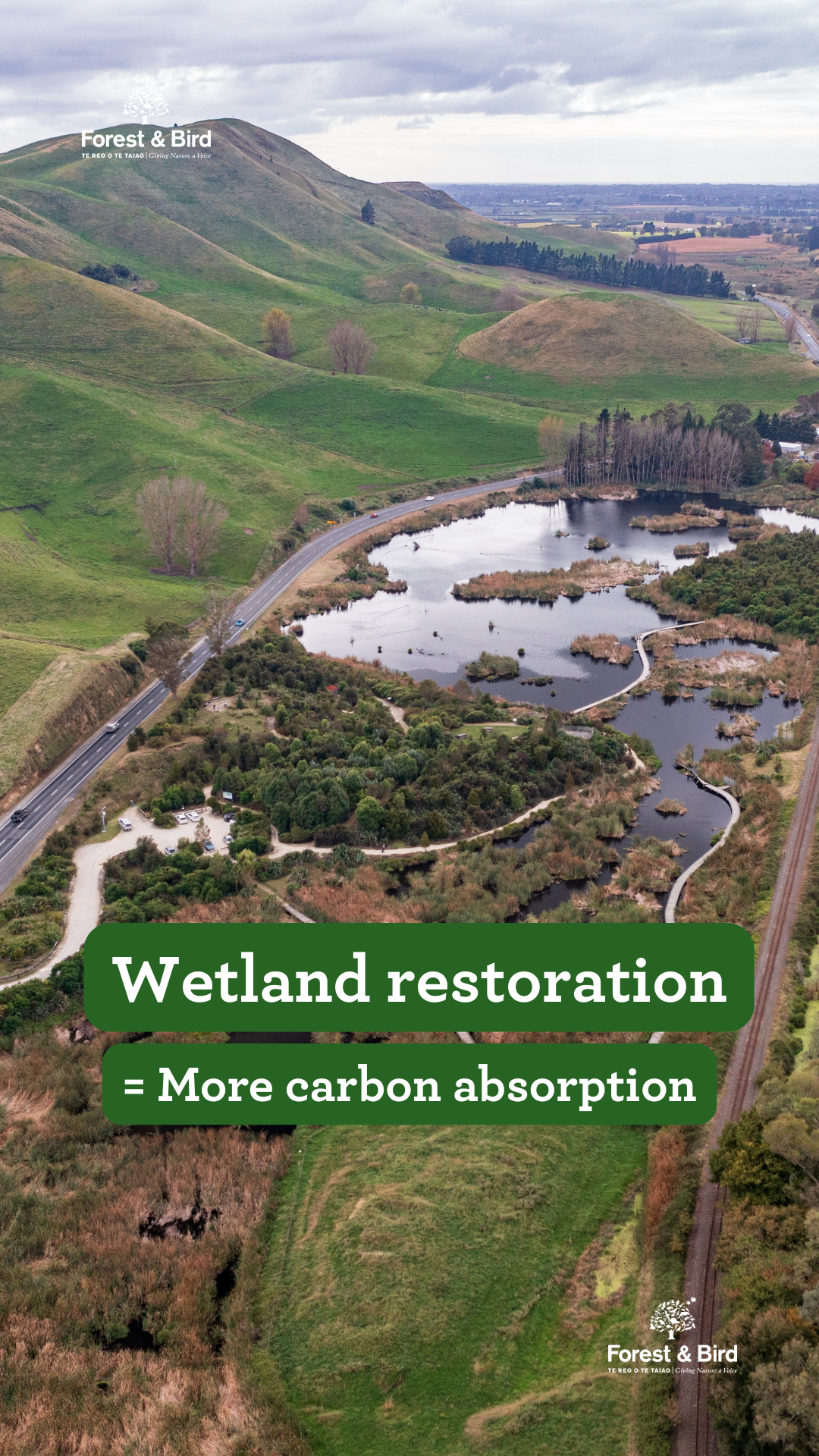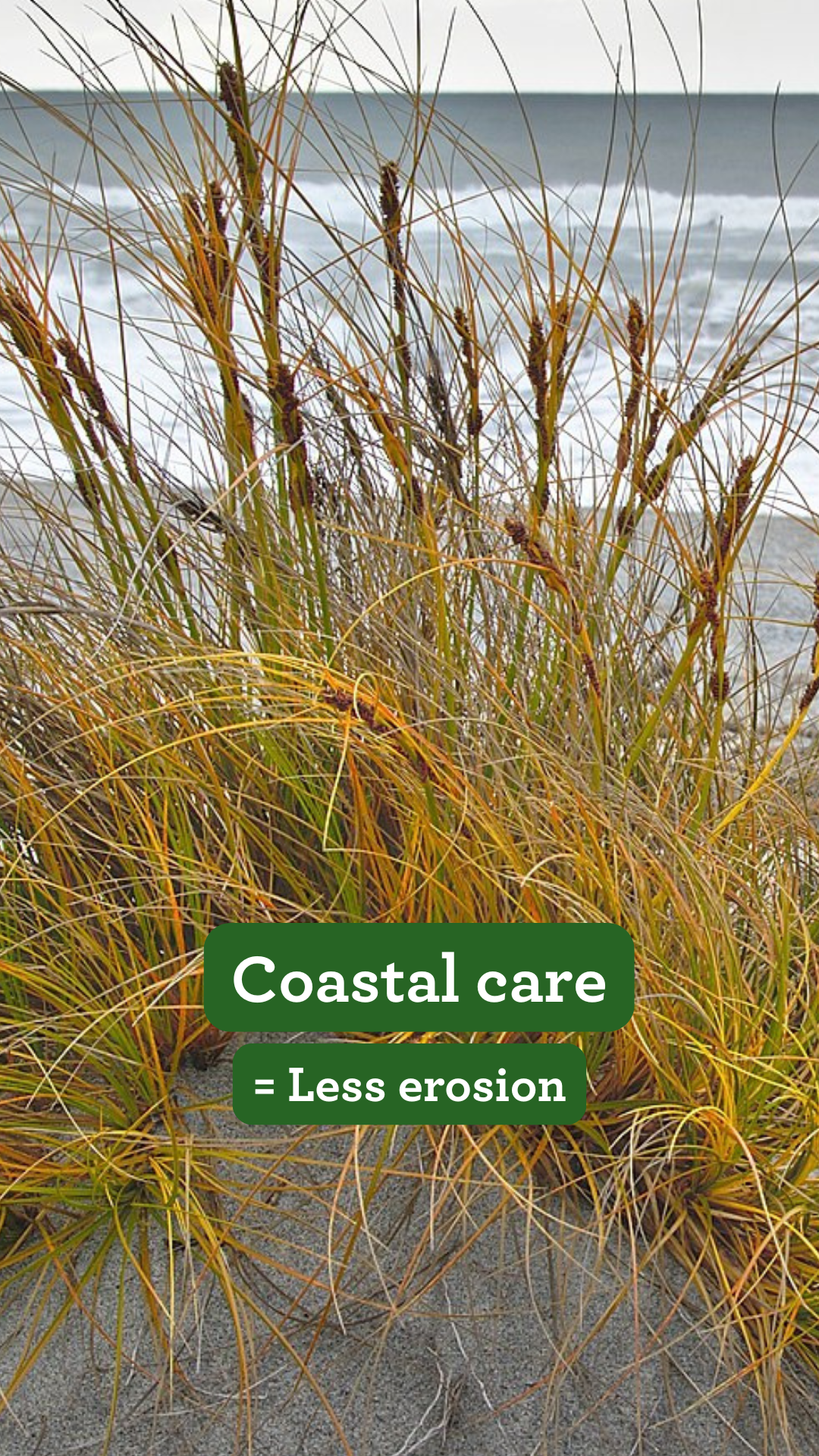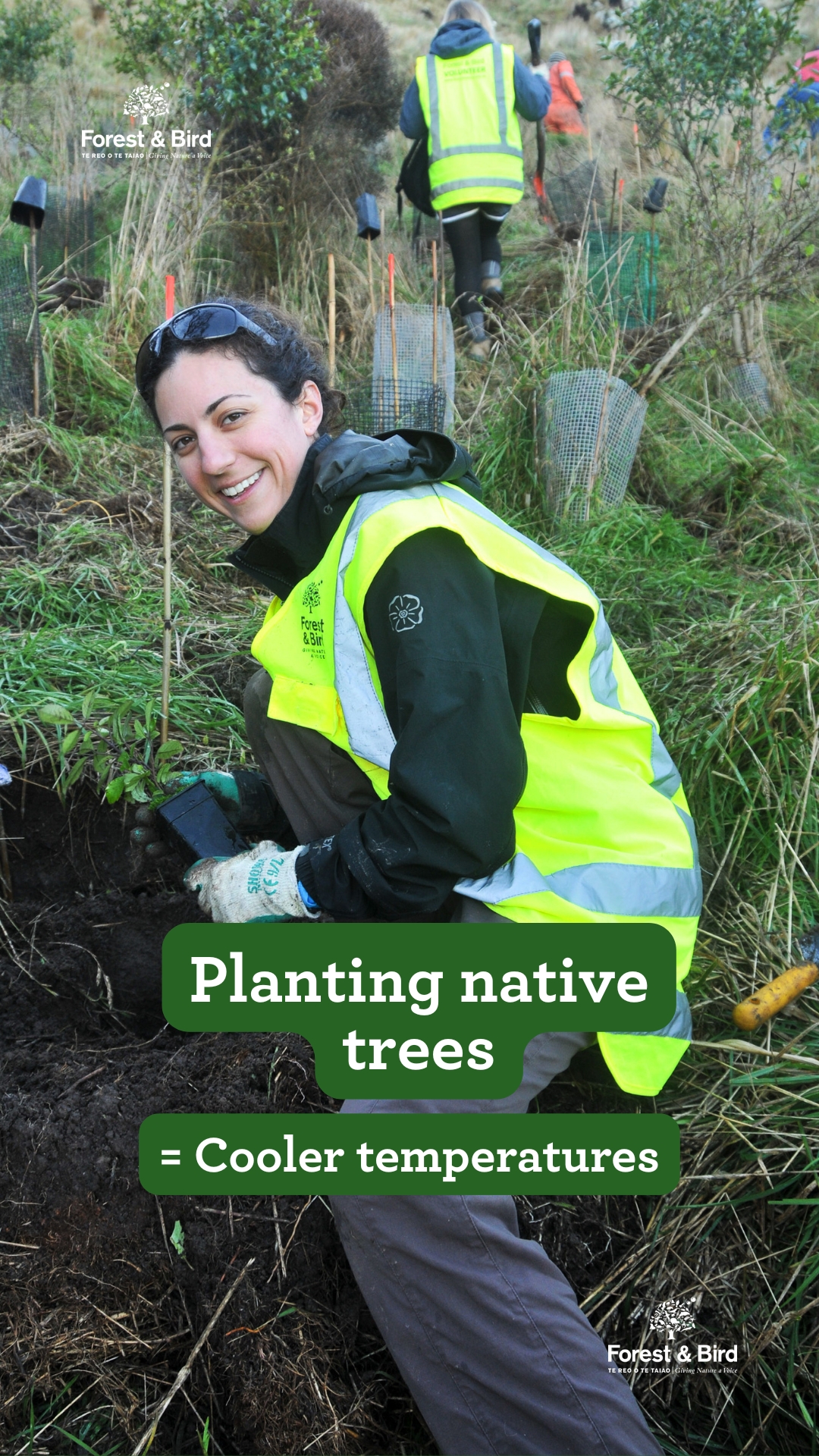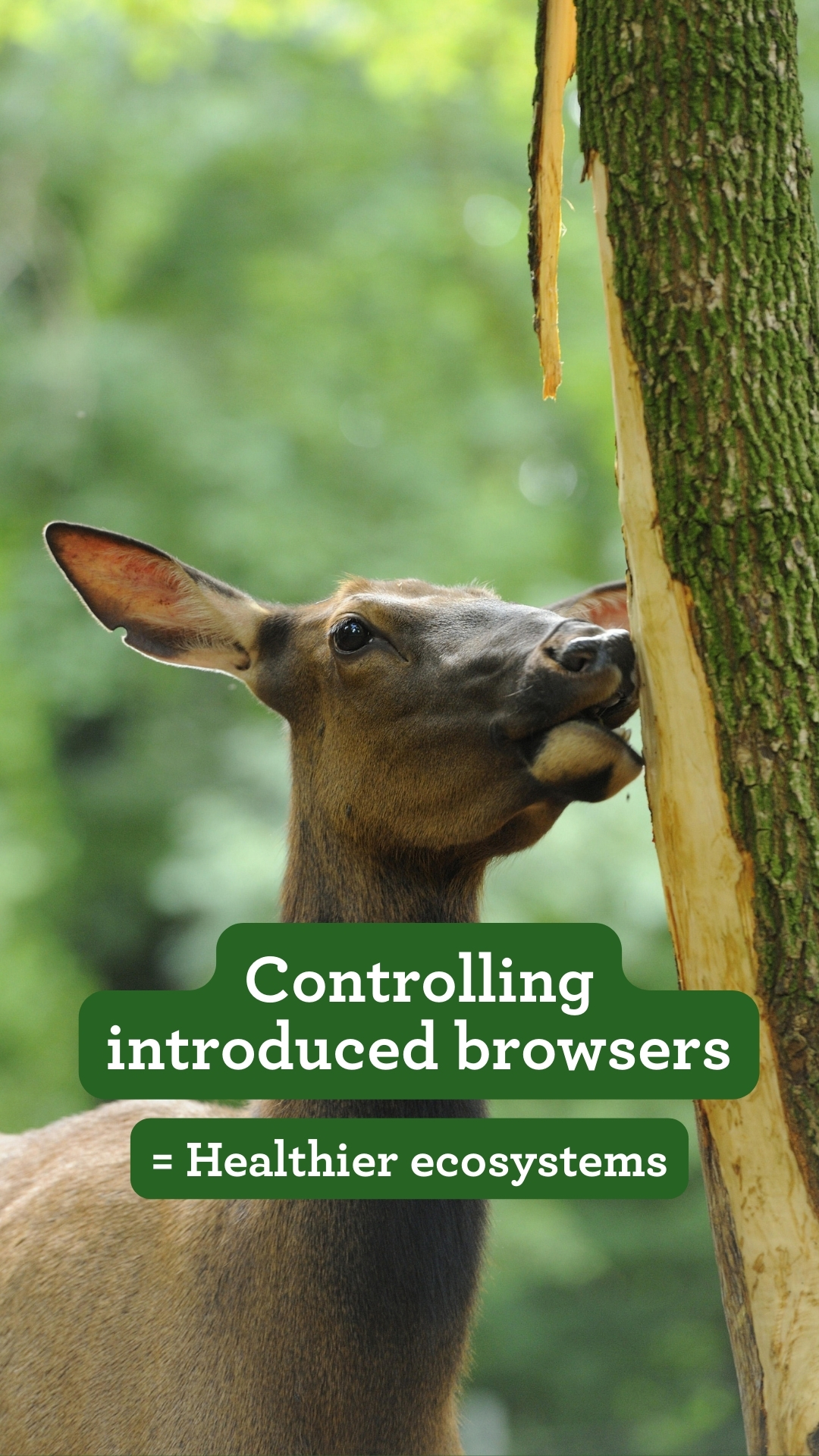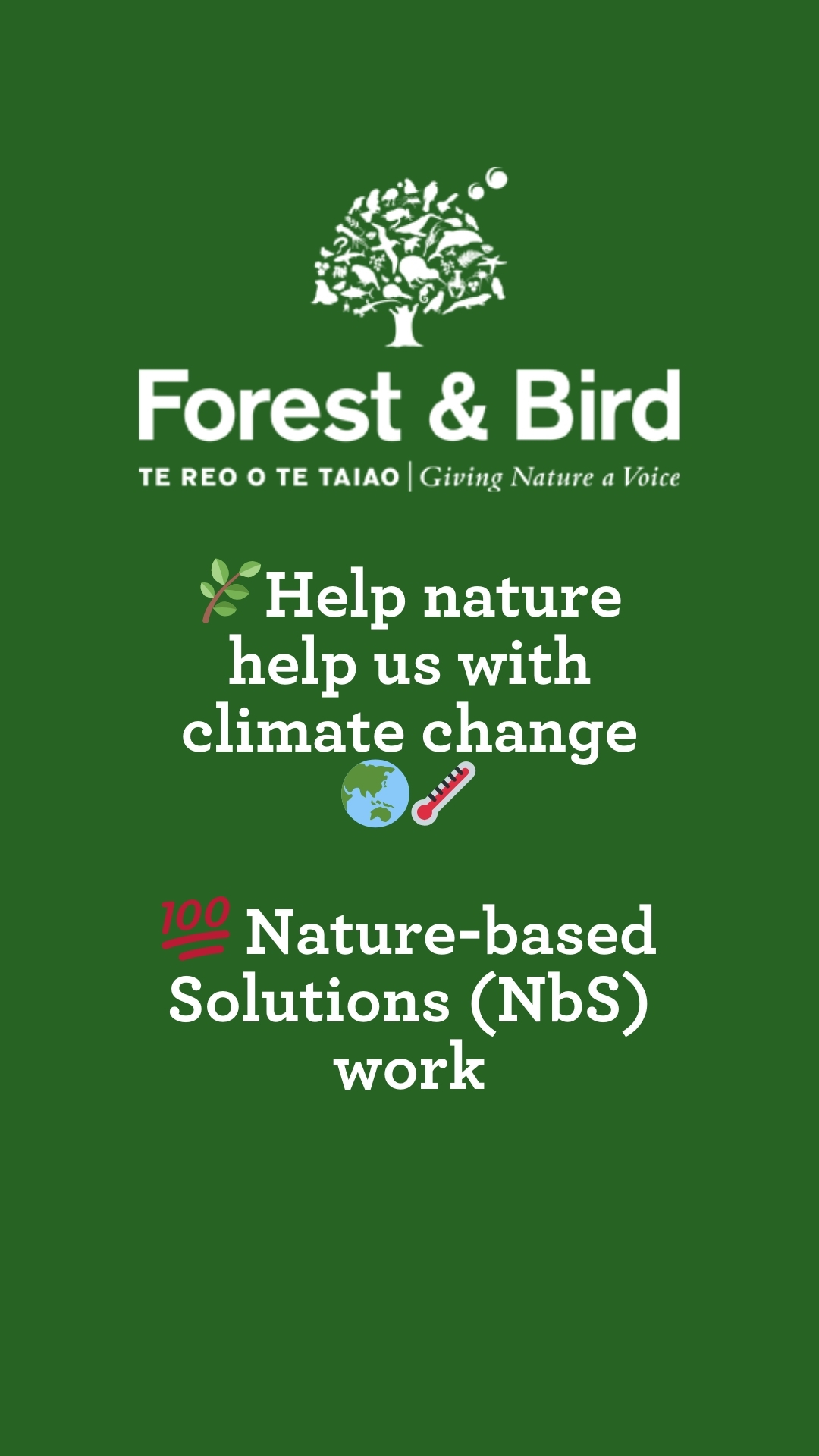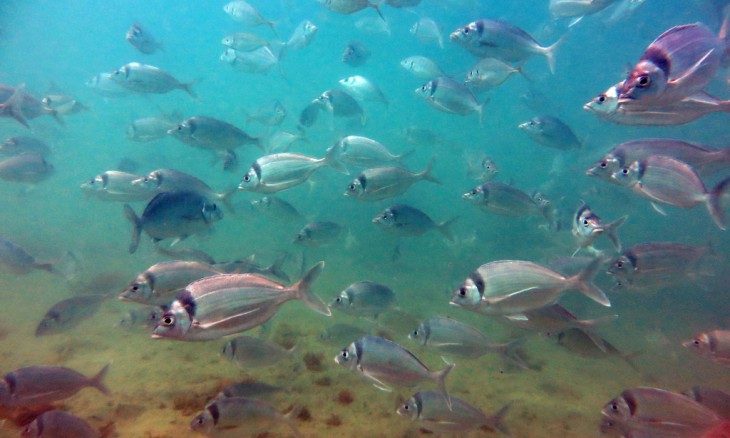Why it matters
Nature-based Solutions (NbS) offer ways individuals, communities, and councils can work with nature, for nature, rather than against it. They provide practical solutions to shield our communities from the impacts of climate change – and help species at risk from climate change.
By protecting and restoring native forests, wetlands, rivers, dunes, and mangroves, we can:
reduce the impact of extreme weather events and rising sea levels
improve carbon storage and climate change mitigation, and climate resilience
support communities, wildlife, and wild places
What is Forest & Bird doing?
Our NbS shout-outs
We’re celebrating successful Nature-based Solutions (NbS) across Aotearoa! Check out these inspiring examples below – and watch what we’ve lost.
Lower Hutt Branch chair Andy Mitchell. Credit Caroline Wood
- Making a difference
(Pest Free Hibiscus Coast project) - Nursery champions
(Lower Hutt Branch) - Seeding a sponge city
(Forest & Bird member)
Forest & Bird has several campaigns and branch projects, focused on promoting and implementing Nature-based Solutions. From the grassroots level up, we work to protect, restore, and enhance our natural ecosystems.
Every wetland counts
Wetlands are like Swiss Army knives – they are multi-functional and endlessly useful when dealing with the impacts of climate change. They absorb floodwaters, draw in and store carbon, filter water, and replenish groundwater. They are sources of mahinga kai, used as places for recreation, and are vital habitat for precious wildlife and plants. Protecting, restoring, and enhancing wetlands is essential for climate resilience.
Room for rivers
Rivers need space to move, especially during extreme weather events. “Making Room for Rivers” – allowing rivers to reclaim parts of their natural flood plains in strategic places – is critical in the face of climate change. It protects communities from devastating floods while restoring the environment and enhancing local recreation opportunities. When rivers flow naturally there is reduced risk to life, property, and biodiversity.
Native forests for climate
Native forests and shrublands can’t regulate temperatures or work as carbon sinks if their leaves, branches, bark, and roots are being munched, stripped, and damaged by introduced browsing animals (deer, goats, and pigs) and smothered by pest plants that shouldn’t be there. Making sure our ngahere work as Nature-based Solutions for climate change means:
planting more native trees
weeding out pest plants
controlling introduced browsing animals
Working with nature we can prevent erosion and prevent downstream towns, farms, and infrastructure from flooding.
Coastal care
Sea level rise and extreme weather mean our coastlines are getting a battering and many animals, plants, and 75% of communities in Aotearoa New Zealand live within 10 km of the coast. We can help safeguard ourselves from these storm surges and erosion by protecting and restoring our coastal dunes (with native sand-binding plants such as pīngao) and mangroves.
Submissions
We have advocated for the prioritisation of nature-based solutions through numerous consultations, such as those on the Draft national adaptation plan (2022), inquiries into climate adaptation (2023 & 2024), and the National Policy Statement for Natural Hazard Decision-making (2023).
What can you do
Local body elections are coming up in 2025 – find out what your local representatives stand for when it comes to protecting the environment and responding to climate change challenges.
Stay informed and participate in local consultations (district or city) – keeping an eye out for consultations about the environment, land use, and climate and flood protection means you can have your say and influence policy decisions.
Volunteer to support local NbS initiatives – connect with your local councils and conservation groups to find out what NbS work is happening in your region.
Join Forest & Bird as a member and take part in NbS mahi with your local branch or network.


